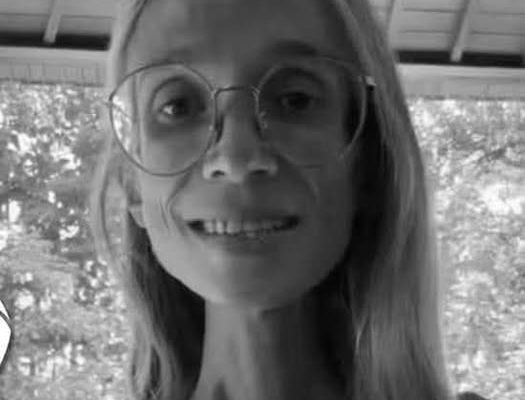At just 27 years old, a young woman’s pursuit of health and balance ended in tragedy. What began as a hopeful attempt to reshape her life through diet and discipline became a silent danger that ultimately cost her everything. Her passing has left friends and family reeling, struggling to comprehend how something that seemed so harmless could take such a devastating turn.
She was known among those close to her as determined, focused, and deeply committed to self-improvement. For months, she had spoken about wanting to transform her lifestyle, believing that through strict discipline she could achieve not only the body she wanted but also a renewed sense of mental clarity and confidence. Like so many others influenced by modern health culture, she turned to the promise of quick results and dramatic change.
Her chosen path was an extreme diet—a rigid plan she believed would detoxify her body, give her energy, and help her reach her goals faster than traditional methods. At first, she embraced it with enthusiasm. Friends remember her talking about the “lightness” she felt, the discipline she was proud of, and the results she thought she was seeing. But behind the optimism, her body was beginning to suffer.
What started as a structured plan slowly became an obsession. Meals were skipped, nutrients neglected, and balance abandoned. To her, it felt like progress. To her body, it was a steady decline. Friends and family noticed she was becoming thinner and paler, but when they expressed concern, she brushed it off. She insisted that this was the “hard part” of transformation, that the discomfort was proof she was succeeding.
The human body, however, has limits. While it can adapt to small changes and recover from temporary deprivation, prolonged restriction comes with severe risks. Without essential vitamins, minerals, and calories, organs weaken, the immune system falters, and energy reserves collapse. Sadly, by the time she began to acknowledge that something was wrong, her body was already failing.
Her loved ones describe her final days as a heartbreaking decline. Once vibrant and full of energy, she had become weak, unable to complete simple tasks without exhaustion. She complained of dizziness, nausea, and chest pains. But even then, she remained committed to the rules of her diet, convinced that her body was simply “adjusting.” She never realized she was in crisis until it was too late.
Doctors later explained that the diet she had followed placed her under dangerous nutritional stress. Her body was deprived of key nutrients, which may have led to organ damage and heart complications. What she had believed was a path toward healing had in fact been slowly draining her life away. By the time medical attention was sought, the damage was irreversible.
Her death has shaken her community, not only because of her young age but because of the reason behind it. She did not die in an accident or from an unpredictable illness. She died trying to follow a plan she thought would make her healthier. That contrast—between her good intentions and the tragic outcome—has left those who knew her searching for answers.
Experts emphasize that her story, while devastating, is not isolated. In recent years, the rise of extreme dieting trends has fueled countless cases of malnutrition, eating disorders, and serious health crises. From “detox cleanses” to “all-liquid fasts” to “zero-carb challenges,” many of these diets promise rapid results while hiding the long-term dangers. Social media often amplifies these trends, presenting them as glamorous, disciplined, or even “scientific,” despite their lack of medical foundation.
Nutritionists warn that drastic diets can shock the body in ways people don’t immediately recognize. Sudden calorie restrictions can slow metabolism and strain the heart. Cutting out major food groups can lead to deficiencies that impact everything from brain function to bone health. While some followers may see short-term weight loss or “detox” effects, the long-term risks are often severe.
In the aftermath of her death, her family has spoken with quiet urgency. They hope her story will serve as a warning to others—not to shame or judge, but to prevent more loss. “She wanted to be better,” one family member shared softly. “She thought she was doing the right thing. She didn’t know the danger.”
Community leaders and healthcare advocates have echoed this call, urging greater awareness about the risks of unverified diet plans. They stress the importance of consulting professionals—doctors, dietitians, or nutritionists—before making major lifestyle changes. They also point out the need for compassion when speaking to young people about body image and health. Too often, diets are framed as shortcuts to happiness, when in reality, they can mask deeper struggles with self-worth and identity.
Friends have been left with vivid memories of her vibrant personality, now overshadowed by grief. They recall her sense of humor, her love of music, her habit of journaling late at night. To them, she was more than a cautionary tale—she was a person with dreams, with plans for the future, with years that should have been ahead of her. Her absence now feels like an open wound, a constant reminder of how fragile life can be.
Her story has sparked conversations far beyond her immediate circle. On social media, strangers have shared their own experiences with extreme diets—stories of fainting, hospitalizations, and battles with eating disorders. Many admitted they recognized themselves in her dedication, in the belief that pushing harder meant getting closer to success. Others said her death made them reconsider the risks of trends they had been tempted to try.
The tragedy also points to a broader cultural issue. Society often glorifies discipline, self-denial, and rapid transformation. People are praised for losing weight quickly, for sticking to harsh routines, for appearing “strong” in the face of hunger. Yet little is said about the dangers, or about the courage it takes to pursue balance instead of extremes. In chasing an ideal, many sacrifice their health, their joy, and sometimes, their lives.
For her loved ones, the grief is personal, but their message is universal: no diet trend, no quick fix, no promise of perfection is worth risking one’s health. True wellness lies in balance, in listening to one’s body, and in seeking guidance from those who understand the complexity of nutrition and the human mind.
As the community mourns, her story stands as a stark reminder of the risks behind extreme dieting. She will be remembered not just for the tragedy of her passing, but for the light she brought to those who knew her, and for the lessons her story can now teach others.
In the end, her life underscores a truth too often overlooked: health is not found in extremes, but in compassion—for oneself, for the body, and for the journey. And if her story can prevent even one person from making the same mistake, her loss, though devastating, may help bring about a greater awareness that saves lives.



